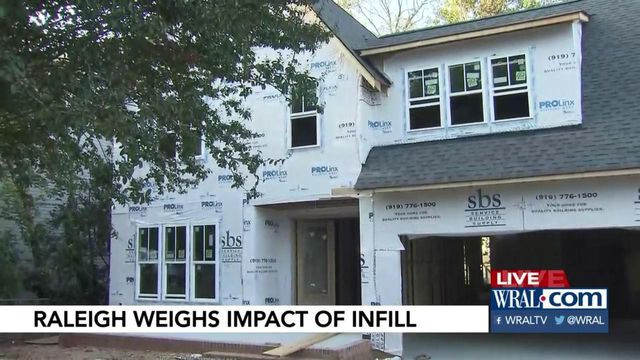As price of Raleigh property soars, builders fill in the gaps, but not everyone approves
When an existing building is replaced with a new, often larger one, built in an area surrounded by existing structures, it's called "infill," and the City of Raleigh is seeing more and more of it.
Posted — UpdatedInfill is one of the techniques that builders use to upgrade property where it's already built out. It's a process that can bring higher property values but, in turn, prices some people out.
"We are rebuilding the downtown," said builder Dicky Gephart, "and that includes neighborhoods that have been built in the 1930s, '40s '50s and '60s."
Gephart's company demolished one home and built two on a single plot.
“You’re just mowing it down and building a new home," said Susan Burnett, who has lived inside the Beltline for more than 30 years. She has watched several homes in her neighborhood get bulldozed to make way for much larger homes. She says there are houses on her street built so close to the property line that neighbors could reach out their windows and touch.
Builders say it would hurt business, and that they have no choice but to build bigger. A builder's rule of thumb is that the lot price is about 20% the value of the home. With Raleigh lots selling for $300,000 to $400,000, builders tend to go bigger.
Extra restrictions and regulations could push those costs even further, Gephart said.
"Any time any new control or regulation is being considered on the housing industry, we need to do a cost/benefit analysis, because some regulation is good and necessary and some is just extraneous and expensive," he said."The more restrictions they put on it, the more it limits what we do, and the more that we have to actually build to maximize what we can on that lot."
• Credits
Copyright 2024 by Capitol Broadcasting Company. All rights reserved. This material may not be published, broadcast, rewritten or redistributed.





